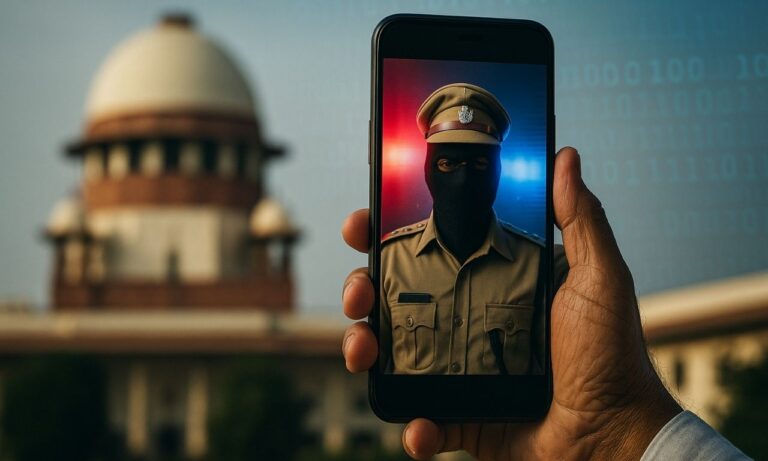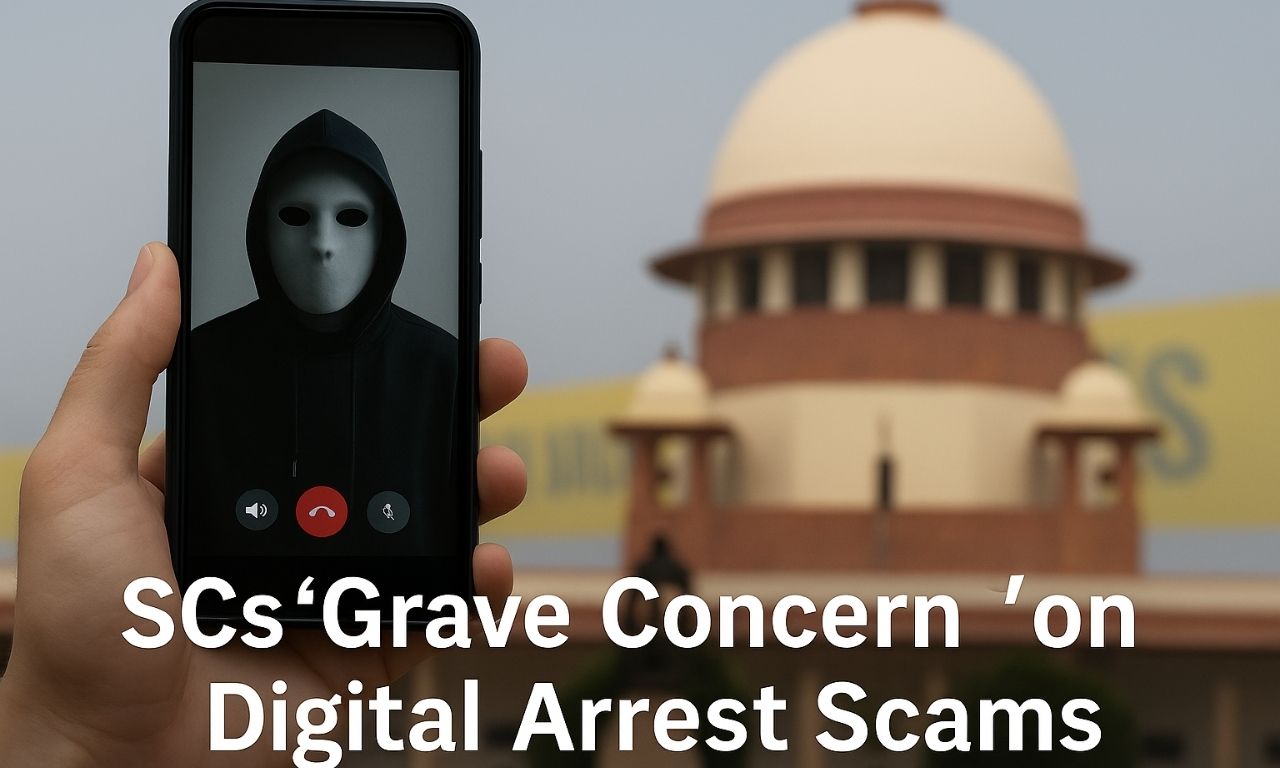The Supreme Court of India has taken suo motu cognisance of the growing cases of digital arrest scams, where cybercriminals impersonate law enforcement and judicial officials to extort money.
What is a Digital Arrest?
- A digital arrest is a cyber scam in which fraudsters impersonate police, CBI, or court officials through phone calls, video calls, or fake documents to threaten victims with arrest or legal action.
- They often claim that the person is involved in money laundering, drug trafficking, or cybercrime, and demand money or personal data to “settle” the case — effectively extorting funds online.

Background of the Case
- The matter came to light after a senior citizen from Ambala, Haryana, wrote to the Court describing how she and her husband were cheated of ₹1.5 crore.
- The fraudsters posed as officials from the CBI, Enforcement Directorate, and the judiciary, using fake court orders and forged documents to threaten and extort the couple.
- The Court noted that such scams are not isolated incidents, but part of a widespread cybercrime network targeting vulnerable citizens.
Supreme Court’s Observations
- A Bench of Justices expressed deep alarm at the use of forged judicial papers and impersonation of government officers.
- It termed the issue a “matter of grave concern” and emphasized the need for a coordinated, nationwide crackdown on such criminal operations.
- The Court called for “stern, pan-India action” to uncover the scale of this organised cyber fraud.
Significance
- The move highlights the Supreme Court’s proactive stance on cyber safety and the misuse of digital platforms for criminal activity.
- It underscores the urgency for enhanced cyber law enforcement, public awareness, and robust verification mechanisms to prevent digital impersonation and protect citizens
Measures Taken by the Indian Government
- Cybercrime Reporting Portal (www.cybercrime.gov.in): The Ministry of Home Affairs operates a 24×7 National Cybercrime Helpline (1930) and online portal where victims can report scams quickly for immediate blocking of fraudulent transactions.
- Indian Cyber Crime Coordination Centre (I4C): Established under the MHA, it coordinates between police, banks, and telecom operators to track, investigate, and disrupt organized cybercrime networks across states.
- Digital Awareness Campaigns & KYC Safeguards: The government and RBI run initiatives like ‘Cyber Surakshit Bharat’ and ‘Stay Safe Online’ to educate citizens about online frauds
Conclusion
The Supreme Court’s intervention aims to ensure stronger national coordination against digital arrest scams, reinforcing citizen trust and cyber accountability across India.
This topic is available in detail on our main website.





